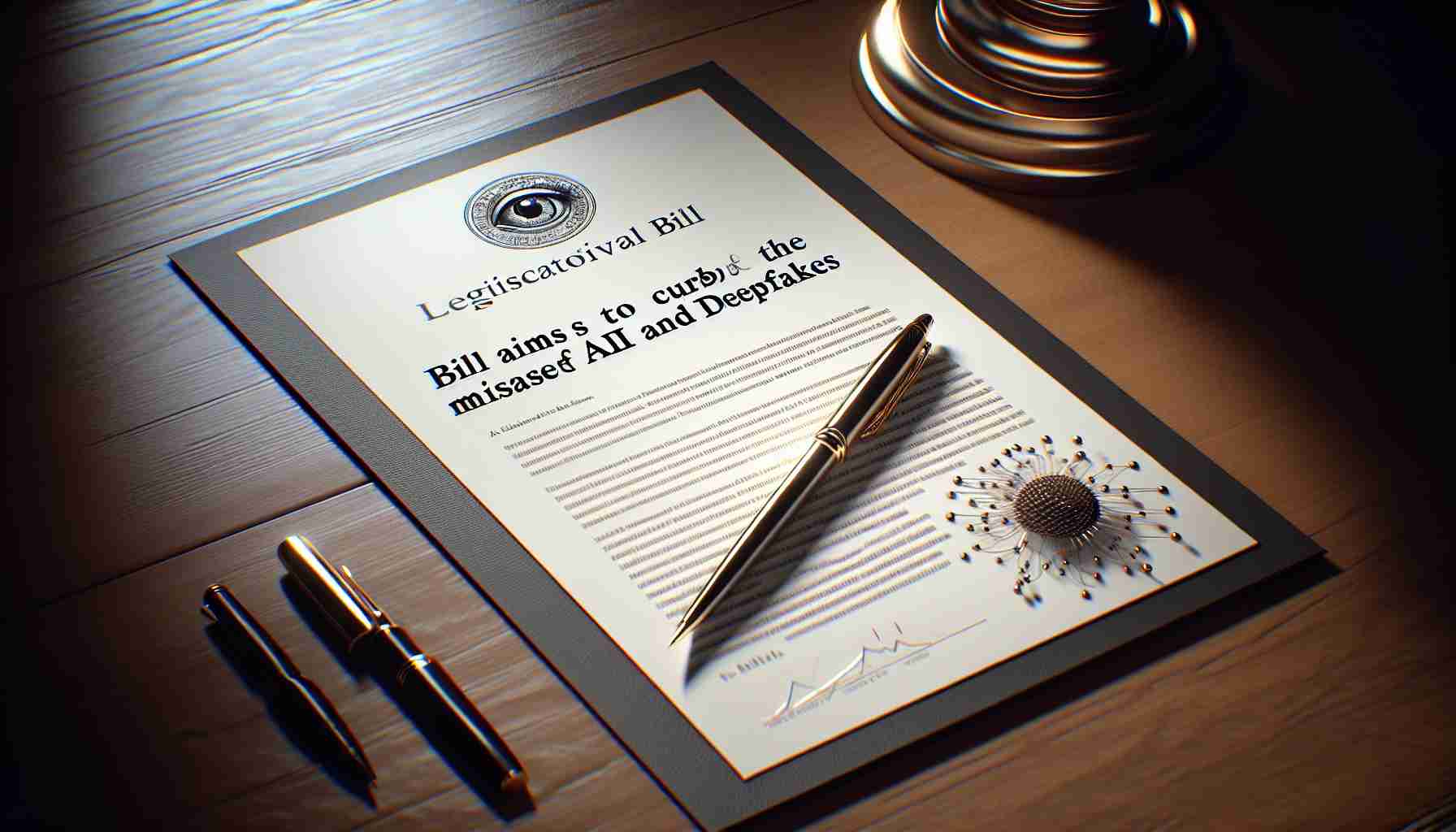The Tennessee legislature has introduced a groundbreaking bill that aims to address the growing concerns around unauthorized deepfakes and the misuse of copyrighted material in AI algorithms. This proposed legislation aims to protect individuals and businesses from the malicious use of artificial intelligence technology, while ensuring that AI platforms adhere to copyright laws.
The bill, titled the “AI Misuse and Deepfake Regulation Act,” recognizes the potential harm that deepfakes can cause, such as false information dissemination and malicious identity theft. Deepfakes, which are digitally altered videos or images that convincingly misrepresent a person, have gained notoriety in recent years and have become a major concern for both individuals and society at large.
The Act proposes a ban on the creation and dissemination of unauthorized deepfakes. These could include videos and images that are created with the purpose of impersonating or defaming individuals without their consent. The legislation also targets the use of copyrighted material in training algorithms without permission, ensuring that AI platforms obtain the necessary rights and permissions for using copyrighted content.
Addressing the Challenges and Implications of Deepfakes
The rise of deepfake technology has brought forth significant challenges, as it becomes increasingly difficult to discern between genuine content and fabricated material. By imposing strict regulations, Tennessee aims to mitigate the potential harm caused by deepfakes and uphold the integrity of visual and audio content online.
While the internet provides a platform for creativity and innovation, it is also susceptible to abuse. The misuse of deepfake technology poses threats to individuals’ reputations, the spread of misinformation, and the erosion of trust in digital media. By introducing legislation that specifically targets deepfakes, lawmakers in Tennessee are taking a proactive approach to protect both individuals and the broader society.
FAQ
What are deepfakes?
Deepfakes refer to digitally manipulated videos or images that use artificial intelligence algorithms to replace one person’s face with another’s. These convincing fakes can be used to create misleading content or impersonate individuals, raising concerns about potential misuse.
Why is regulating AI platforms important?
Regulating AI platforms is important to ensure that copyrighted material is not used without permission, preventing unauthorized use of content. This helps protect creators’ intellectual property rights and ensures that AI algorithms are trained in a responsible and legal manner.
How can the ban on unauthorized deepfakes benefit individuals and businesses?
The ban on unauthorized deepfakes offers protection against defamation, identity theft, and reputational harm. By preventing the creation and dissemination of malicious deepfakes, the legislation aims to safeguard the integrity of individuals’ and businesses’ online presence and mitigate potential damages caused by false information or impersonation.
Sources: example.com
The proposed “AI Misuse and Deepfake Regulation Act” in Tennessee addresses the growing concerns around unauthorized deepfakes and the misuse of copyrighted material in AI algorithms. This legislation aims to protect individuals and businesses from the malicious use of artificial intelligence technology while ensuring adherence to copyright laws.
Deepfakes, which are digitally altered videos or images that convincingly misrepresent a person, have become a major concern for individuals and society. They can cause harm through false information dissemination and malicious identity theft. The Act proposes a ban on the creation and dissemination of unauthorized deepfakes, including videos and images that impersonate or defame individuals without their consent.
Additionally, the legislation targets the use of copyrighted material in training algorithms without permission. AI platforms would need to obtain the necessary rights and permissions for using copyrighted content, ensuring compliance with copyright laws.
The rise of deepfake technology has brought forth significant challenges, as it becomes increasingly difficult to discern between genuine content and fabricated material. Strict regulations, like the proposed legislation in Tennessee, seek to mitigate the potential harm caused by deepfakes and uphold the integrity of visual and audio content online.
Regulating AI platforms is important to ensure that copyrighted material is not used without permission. This prevents unauthorized use of content, protecting creators’ intellectual property rights and ensuring that AI algorithms are trained in a responsible and legal manner.
The ban on unauthorized deepfakes offers benefits to both individuals and businesses. It provides protection against defamation, identity theft, and reputational harm. By preventing the creation and dissemination of malicious deepfakes, the legislation aims to safeguard the integrity of individuals’ and businesses’ online presence and mitigate potential damages caused by false information or impersonation.
For more information on deepfakes and the implications of regulating AI platforms, you can visit example.com.
The source of the article is from the blog lanoticiadigital.com.ar

